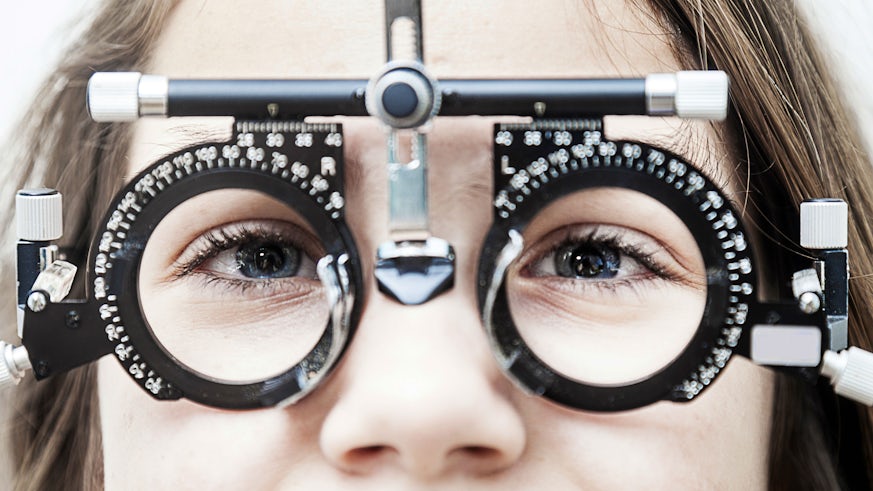Study suggests education causes short-sightedness
6 June 2018

The more time a person spends in education the more likely they are to develop short-sightedness, reveals a study led by Cardiff University and the University of Bristol.
The research, which provides new evidence that time spent in education is a causal risk factor for short-sightedness (myopia), reveals that for every additional year spent in education, there is an increase in myopic refractive error of 0.27 dioptres. This suggests that a UK university graduate with 17 years in education would, on average, be one dioptre more myopic than an individual who left school at 16 with 12 years of education. This difference in myopia severity is enough to blur vision for driving below legal standards.
Myopia, or short-sight, is one of leading causes of visual disability in the world. The global prevalence is rising rapidly and has reached epidemic levels in parts of East and Southeast Asia.
For more than a century, observational studies have reported links between education and myopia, but whether time spent in education causes myopia has been uncertain.
To investigate whether more time spent in education is a causal risk factor for myopia, the researchers used an approach called ‘Mendelian randomisation’ (MR) to study approximately 68,000 participants of the UK Biobank.
Professor Jez Guggenheim from Cardiff University’s School of Optometry and Vision Sciences, who co-led the research, said: “This study provides new evidence suggesting that education is a causal risk factor for myopia. With the rapid rise in the global prevalence of myopia and its vision-threatening complications, together with the economic burden of visual loss, the findings of this study have important implications for educational practices.
Exactly how education might impact children’s eyesight is not clear from the current analyses. However, there is good evidence from randomised controlled trials that spending additional time outdoors protects children against the development of myopia, so this could be part of the explanation. Near work activities, such as reading, have been associated with myopia, although not as consistently as lack of time spent outdoors.
Until the link between education and myopia is better understood, the research team recommend children spend plenty of time outdoors (with appropriate sun protection, including a hat and sunglasses in very sunny conditions).
The research ‘Education and myopia: a Mendelian randomisation study’ is published in BMJ.
Share this story
The School is dedicated to providing a dynamic and stimulating learning environment informed by its leading research in optometry and vision science.
